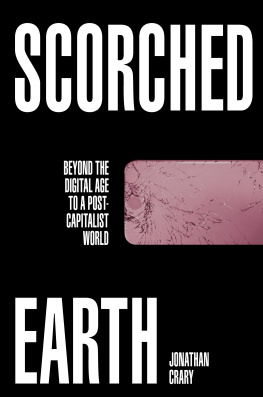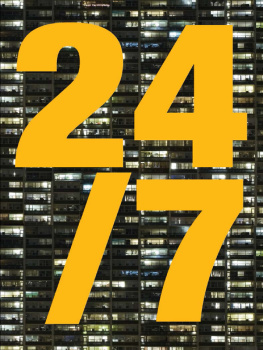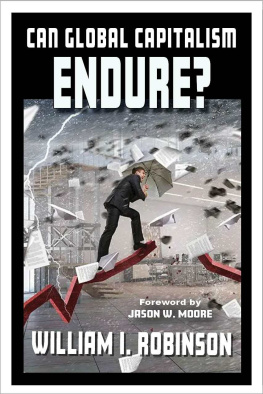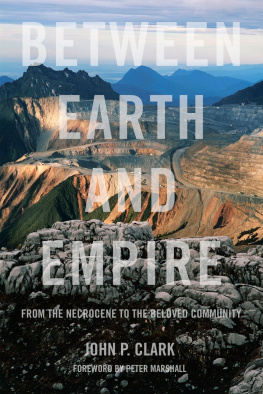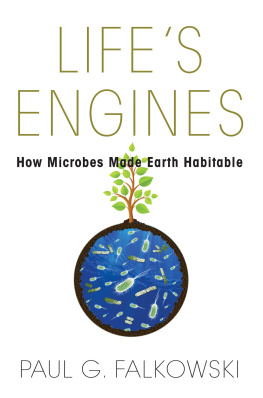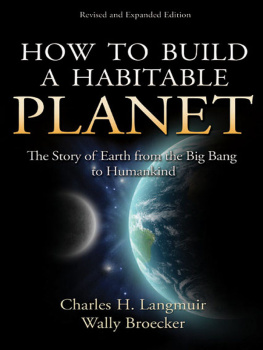Contents

SCORCHED EARTH
SCORCHED EARTH
Beyond the Digital Age
to a Post-Capitalist World
Jonathan Crary

First published by Verso 2022
Jonathan Crary 2022
All rights reserved
The moral rights of the author have been asserted
1 3 5 7 9 10 8 6 4 2
Verso
UK: 6 Meard Street, London W1F 0EG
US: 20 Jay Street, Suite 1010, Brooklyn, NY 11201
versobooks.com
Verso is the imprint of New Left Books
ISBN-13: 978-1-78478-444-7
ISBN-13: 978-1-78478-446-1 (US EBK)
ISBN-13: 978-1-78478-445-4 (UK EBK)
British Library Cataloguing in Publication Data
A catalogue record for this book is available from the British Library
Library of Congress Cataloging-in-Publication Data
A catalog record for this book is available from the Library of Congress
Typeset in Garamond by Biblichor Ltd, Edinburgh
Printed and bound by CPI Group (UK) Ltd, Croydon, CR0 4YY
Contents
No dont say doom
Tom Verlaine
Im grateful to Sebastian Budgen and his colleagues at Verso for their continued backing of my work. For support and input of many kinds, my thanks and appreciation go to Hal Foster, Ron Clark, Federico Campagna, Andreas Malm, the late Bernard Stiegler, Michael Hardt, Yves Citton, tienne Jollet, Sarah Cook, Jonathan Reekie, Cosima Dannoritzer, Ana Rovati, Uta Barth, Canada Choate, Tim Melley, Ruth Patir, Tali Keren, Greg Saunier and Deerhoof, Jon Wozencroft, Fergus Daly and Katherine Waugh, Brooke Holloway, Emmelyn Rosen-Butterfield, Marc Gottlieb, Michael Witt, Alyson Ogasian, Xueli Wang, Amy Powell, Eli Keller, Amity Law, Matt Kennedy, Cynthia Williams, Isabelle Kalander, John Ledger, and Guillermo Garcia. Special thanks to my family for their help and encouragement.
Yes, its night and another world is rising. Harsh, cynical, illiterate, amnesiac, revolving without reason Spread out, flattened, as if perspective and vanishing point had been abolished And the strange thing is that the living dead of this world are based on the world before
Philippe Sollers, cited in Jean-Luc Godard,
Histoire(s) du cinma
If there is to be a livable and shared future on our planet, it will be a future offline, uncoupled from the world-destroying systems and operations of 24/7 capitalism. In whatever endures of the world, the grid, as we live within it today, will have become a fractured and peripheral part of the ruins on which new communities and interhuman projects may possibly arise. If were fortunate, a short-lived digital age will have been overtaken by a hybrid material culture based on both old and new ways of living and subsisting cooperatively. Now, amid intensifying social and environmental breakdown, there is a growing realization that daily life overshadowed on every level by the internet complex has crossed a threshold of irreparability and toxicity. More and more people know or sense this, as they silently experience its damaging consequences. The digital tools and services used by people everywhere are subordinated to the power of transnational corporations, intelligence agencies, criminal cartels, and a sociopathic billionaire elite. For the majority of the earths population on whom it has been imposed, the internet complex is the implacable engine of addiction, loneliness, false hopes, cruelty, psychosis, indebtedness, squandered life, the corrosion of memory, and social disintegration. All of its touted benefits are rendered irrelevant or secondary by its injurious and sociocidal impacts.
The internet complex has become inseparable from the immense, incalculable scope of 24/7 capitalism and its frenzy of accumulation, extraction, circulation, production, transport, and construction, on a global scale. Behaviors that are inimical to the possibility of a livable and just world are incited in almost every feature of online operations. Fueled by artificially manufactured appetites, the speed and ubiquity of digital networks maximize the incontestable priority of getting, having, coveting, resenting, envying; all of which furthers the deterioration of the worlda world operating without pause, without the possibility of renewal or recovery, choking on its heat and waste. The techno-modernist dream of the planet as a colossal worksite of innovation, invention and material progress continues to attract defenders and apologists. Most of the many projects and industries of renewable energy are designed for perpetuating business as usual, for maintaining devastating patterns of consumption, competition, and heightened inequality. Market-driven schemes such as the Green New Deal are absurdly pointless because they do nothing to switch off the expansion of senseless economic activity, the needless uses of electrical power, or the global industries of resource extraction incited by 24/7 capitalism.
This book is aligned with a tradition of social pamphleteering that aims to give voice to what is experienced in common, to what is known or partly known in common but is negated by an overpowering barrage of messages that insist on the unalterability of our administered lives. Many people, on a daily basis, have a visceral grasp of the immiseration of their lives and hopes, but may only have a hesitant awareness of how widely their insights are shared with others. My goal here is not to present a nuanced theoretical analysis, but, in a time of emergency, to affirm the truth of shared understandings and experiences and to insist that forms of radical refusal, rather than adaptation and resignation, are not only possible but necessary. The internet complex functions as an unending announcement of its indispensability and of the insignificance of whatever life remains unassimilable to its protocols. Its omnipresence and embeddedness within almost every sphere of personal and institutional activity makes any notion of its impermanence or post-capitalist marginalization seem unthinkable. But this impression marks a collective failure of imagination, in its passive acceptance of numbing online routines as synonymous with living. It is unthinkable only to the extent that our desires and our bonds with other peoples and species have been wounded and incapacitated.
The philosopher Alain Badiou noted that it is at this point of apparent impossibility that the conditions for insurgency arise: Emancipatory politics always consist in making seem possible precisely that which, from within the situation, is declared to be impossible.How, they will ask incredulously, could we do without something on which every aspect of financial and economic life depends? Translated, this question is actually: How could we possibly do without one of the core elements of the techno-consumerist culture and economy that has brought life on earth to the edge of collapse? To have a world not dominated by the internet, they will say, would mean changing everything. Yes, precisely.
Any possible path to a survivable planet will be far more wrenching than most recognize or will openly admit. A crucial layer of the struggle for an equitable society in the years ahead is the creation of social and personal arrangements that abandon the dominance of the market and money over our lives together. This means rejecting our digital isolation, reclaiming time as lived time, rediscovering collective needs, and resisting mounting levels of barbarism, including the cruelty and hatred that emanate from online. Equally important is the task of humbly reconnecting with what remains of a world filled with other species and forms of life. There are innumerable ways in which this may occur and, although unheralded, groups and communities in all parts of the planet are moving ahead with some of these restorative endeavors.

